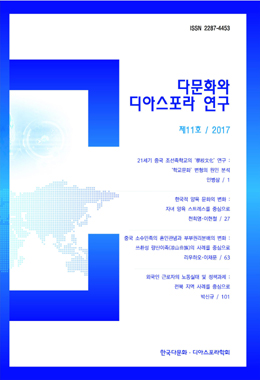정부는 한국사회의 단일민족주의적 특수성을 충분히 고려하지 않은 채 서구의 다문화정책을 모방하였다. 또한 여러 부처에서 다문화 관련 정책들을 경쟁적으로 실행하였고 이는 비효율성과 예산낭비를 유발했다. 결과적으로 다른 저소득층 복지정책과 형평성이 어긋나 상당수 국민들로 하여금 역차별을 느끼게 하였다. 이러한 다문화정책의 문제점에 더하여 최근 외국인 강력범죄 증가, 이주노동자들로 인한 일자리 잠식, 기존의 단일민족주의 의식이 복합적으로 작용해 다문화 혐오증을 불러일으켰다.
그러나 저출산, 고령화 사회의 한국이 다문화주의를 포기할 수는 없으므로 그러한 다문화 혐오증을 극복하고 사회통합을 이룩하기 위해 노력해야 한다. 다문화 정책의 비효율성과 예산낭비를 줄이고 다문화주의에 대한 국민들의 반감을 정책적 차원에서 고려하는 것이 중요한 과제이다. 국민들의 다문화에 대한 의식개선을 위한 홍보·교육프로그램 개발도 시급하다. 다문화 혐오증을 극복하려면 다문화정책 컨트롤타워 구축, 네트워크형 다문화 거버넌스 체제 구축, 동화에서 통합으로의 정책 전환이 요구된다.
Recently anti-multiculturalism has arisen in South Korean society. There are four major reasons for that phenomenon. First, the violent crimes by foreigners have increased. Second, jobs for domestic workers have decreased with foreign workers increasing. Third, South Koreans have a strong mentality of nationalism. In other words South Korean society has a distinctiveness as a racially homogeneous nation. Fourth, the multicultural policy of South Korean government is now facing a loud opposition by some people and groups. However, in face of low birth rate and high aging population we cannot stop multiculturalism. So we should make efforts to overcome anti-multiculturalism and achieve social integration. Therefore this study suggests three policy recommendations: 1) building the control tower of multicultural policy; 2) formation of multicultural network governance system; 3) multicultural policy switch from assimilation to integration.




